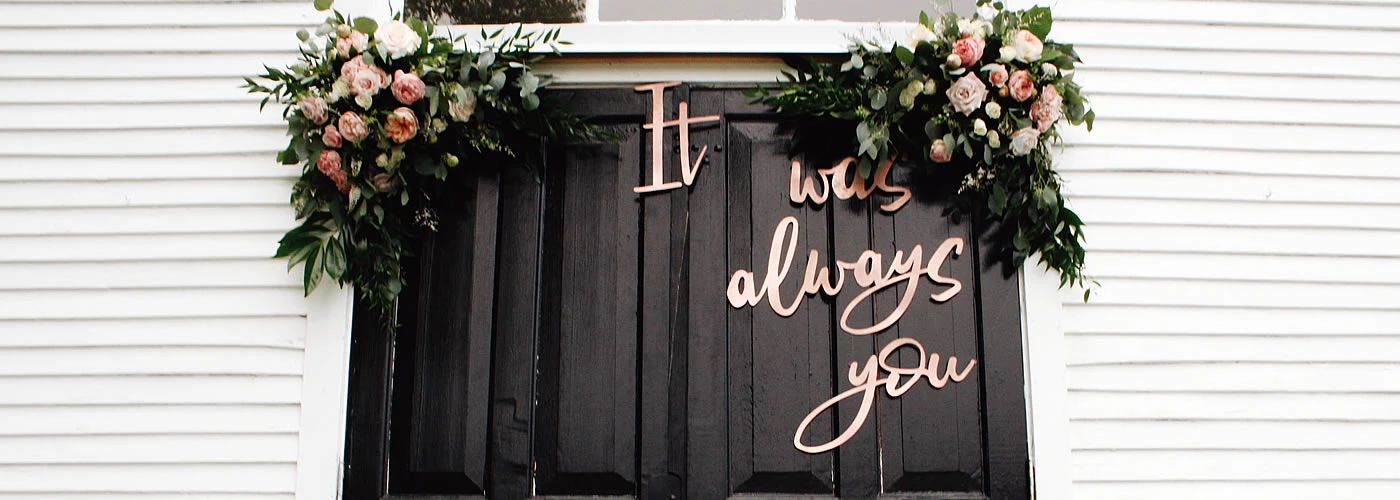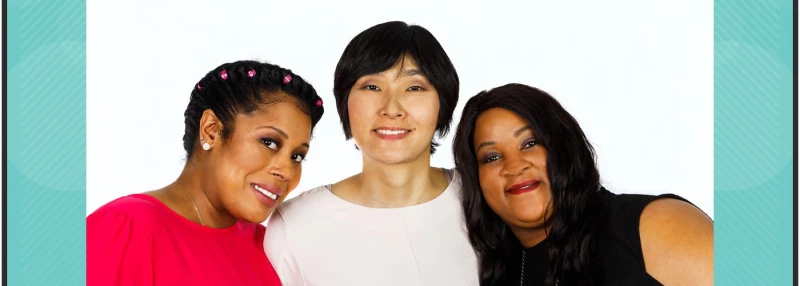I don’t think that anyone really expects the diagnosis of a major, terminal illness. Within the confines of marriage, in particular, we make vows - “in sickness and in health,” “for better or for worse” and “til death do us part.” We say these vows with utmost solemnity, and we mean them, to the extent in which we can understand.
"We live with the fantasy of growing old together. We envision wrinkled hands clasped together, knowing glances, and laugh lines creasing into well-worn smiles. A young marriage with metastatic breast cancer shatters those illusions in their entirety."
Which is to say that, oftentimes, we don’t fully understand what those words mean. As life partners, we don’t know if in sickness and in health will require us to navigate a man-cold or metastatic cancer.
We live with the fantasy of growing old together. We envision wrinkled hands clasped together, knowing glances, and laugh lines creasing into well-worn smiles.
A young marriage with metastatic breast cancer shatters those illusions in their entirety. While there may be those who refuse to acknowledge that truth, citing relentless positivity. The reality is often a much colder, crueler understanding that those fantasies of aging romance die along with the vow of “til death do us part.”
A Burgeoning Life Together
I was diagnosed with metastatic breast cancer at age 32. My husband and I had been together just shy of a decade, having met and fallen in love in the early, new days of our twenties. After five years of marriage, we had a new (to us) house in the suburbs. And a two-year-old son, the light of our lives.
Life was challenging, as it often is in the throes of burgeoning careers, raising a young child, and moving into a new house. But it was good. We lived with contentedness, satisfaction. We were trying to get pregnant with a second baby, the baby that would likely complete our family. I was in the process of starting my own business, having stepped away from full-time law practice for the last two years in order to stay home with our son.
After my diagnosis, our life became fractured, terrifying. We were thrust, kicking and screaming, into a world of dark unknowns. Life expectancy limitations, breast cancer statistics, metastatic breast cancer treatment plans, appointments - so many appointments - and of grief. Deep, intense, solitary grief.
Deep, Intense, Solitary Grief
It took nearly a year for my husband and I to find emotional space to talk about my diagnosis and what it meant for our life going forward. There were topics that he refused to engage with - my sadness over our inability to have more children, for example. I grieved over the loss of a sibling for our son, but my husband could not go to that space. He could not grieve for hypotheticals when he was grieving for so many concrete losses.
"I grieved over the loss of a sibling for our son, but my husband could not go to that space. He could not grieve for hypotheticals when he was grieving for so many concrete losses."
Eventually, he and I began to talk about the end of my life. Although it was uncomfortable - I brought it up tepidly - I wanted him to know some of my wishes. I wanted him to know my wishes for him as well. We talked about the way I wanted to die - in hospice care, at home, and whether I wanted artificial life support. We talked about funeral arrangements, the logistics of death that I was trained professionally to handle, but would no longer be around for. We talked about whether he might remarry, and what that might look like. We talked about the values we wanted for our son. And what a blended family might look like for both of them. We talked about whether he might want to have more children with a second wife after my death. We talked about how afraid we were about when I would die, about what it would look like, and about our anger and sadness over the loss of decades. We talked about travel, and fantasized about cashing in my retirement account and escaping to Paris and Rome.
In those conversations, the hushed, uncomfortable, and the morbid, we discovered a new facet of our marriage. Our marriage has always centered around our love of laughter and appreciation for the off-kilter sense of humor in the other. Slowly, we found that humor in these dark places as well.
I See You Laughing In the Dark
Join Group
One evening, I told my husband that he wasn’t allowed to buy any future wives a diamond ring bigger than the diamond he had given me. He rolled his eyes and laughed at the ridiculousness of that request. It felt good to laugh again.
Something else happened in that space of grave intimacy: we reconnected in new physical ways as well. After the hell my body had been through in the past year, between hormone therapies, chemical menopause, a total hysterectomy, targeted brain radiation, and the requisite poking, touching, examining, and general reductive nature of life as a patient with a serious illness, our sexual relationship had taken a significant and damaging hit. But, as we worked to break down the walls of fear, grief, and uncertainty, we found new avenues in which we could reconnect.
My body, so dramatically changed in a short period of time, was uncharted terrain. And I was fearful of it in nearly every capacity. However, my husband encouraged me to allow him to embrace it, and embrace me. We learned what post-menopause sex in our early 30s meant for us. And we found acceptance in what we had found in this new space for each other.
 Emily Garnett is a former elder law and special needs attorney whose practice focused on adult guardianships, capacity issues, care management and public benefits. Today, she is the face of Beyond the Pink Ribbon, an advocacy and awareness platform where she documents her experience living with metastatic breast cancer. Emily also serves as the host of The Intersection of Cancer & Life podcast.
Emily Garnett is a former elder law and special needs attorney whose practice focused on adult guardianships, capacity issues, care management and public benefits. Today, she is the face of Beyond the Pink Ribbon, an advocacy and awareness platform where she documents her experience living with metastatic breast cancer. Emily also serves as the host of The Intersection of Cancer & Life podcast.




